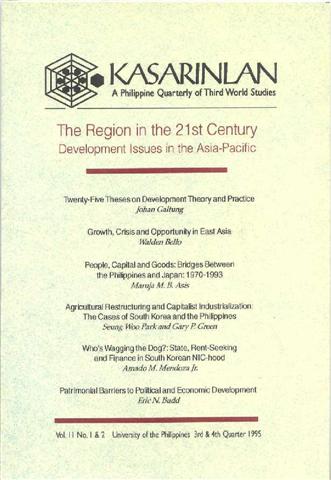Twenty-Five Theses on Development Theory and Practice
Abstract
In the present world capitalist system, the word “development” has become more ambiguous than ever. The article discusses the concept of development in the context of the prevailing world order. In defining development, the cultural diversity of nations should be taken into consideration, as development for one may not be so for the other. This diversity in development cultures make it imperative for more developed countries (MDCs) not to impose their own models of development on less developed countries (LDCs). Conversely, LDCs should design their own development strategies and work for their realization on their own.As the imposition of development models is discouraged, so is adherence to one economic system. To achieve development, an eclectic use of several economic systems is necessary. Several economic systems can be formulated if market and plan are seen not as opposites, but typologists that can be combined to form other economic systems. Moreover, another necessary condition for development is the decentralized distribution of production forces to all, making everybody a potential part in production. The basic point about decentralization from the economic point of view is the mobilization of resources, not only human, but also nature, social, time and culture, thus maximizing the number of sites of creation and production.
Finally, as a supplement to the thesis on self-development, LDCs should be able to reciprocate the assistance they receive from MDCs, practically in the form of non-material help such as development advice. Only by reciprocity in this sense can development assistance be a true dialogue, as it should be, between parties and not as a means, as it is now, for reproducing Western culture.
Section
Features
Keywords
Development Theory and Practice, Less Developed Countries, More Developed Countries
By submitting a manuscript, the authors agree that the exclusive rights to reproduce and distribute the article have been given to the Third World Studies Center.



